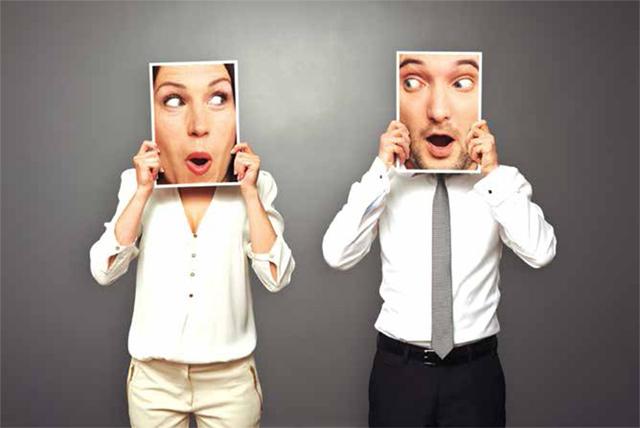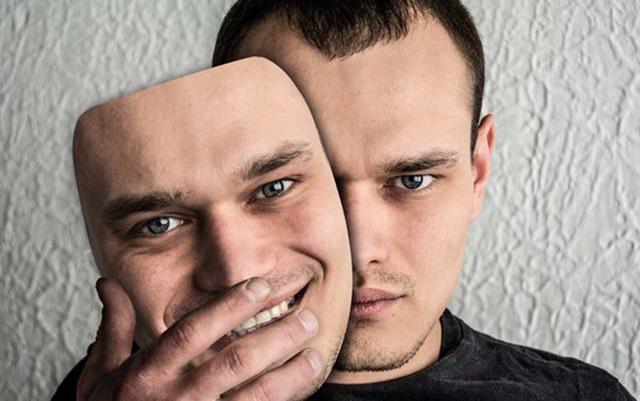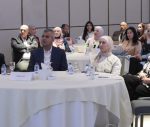You are here
Authenticity in our relationships
By Mariam Hakim , Family Flavours - Sep 27,2020 - Last updated at Sep 27,2020

Photo courtesy of Family Flavours magazine
Because of our upbringing, many of us grew up conditioned to hide who we really are. Instead, we present ourselves in ways that we believe will gain us more acceptance, admiration and validation. Does this describe you?
The price we pay
If we do not live genuinely and authentically, we will:
• Have difficulty forming genuine and intimate connections: Authenticity is a prerequisite to building intimacy in relationships, but it requires us to embrace vulnerability, which in turn means allowing others to know us fully with all our needs, weaknesses, thoughts, warts and challenges. We often hide our true selves as we fear being judged and accordingly our relationships remain shallow and lack depth, meaning as well as a genuine connection
• Lose sight of our true nature: Years of living like a chameleon and only presenting a constructed version of ourselves to the outside world will eventually make us lose touch with who we are and what we need in life. It almost feels like we are living a scripted existence that encompasses all the shoulds and have to’s around us
• Come across as “wishy-washy”: With time, people will recognise that our opinions and behaviours do not come from our solid convictions and values but change according to circumstance. This leads us to adopt double and triple standards to serve what works for us best in any given situation, which in turn prevents us from forging genuine and true relationships and friendships
• Stunt our ability to work on ourselves and grow: When people show an edited version of themselves to the world, they lose sight of identifying and improving personality weaknesses and other issues they might have, thereby reducing any chance for improvement
How can we be more authentic?
• Identifying and honouring our feelings and needs: Becoming aware of who we are by getting in touch with our vulnerabilities and needs: identifying them, acknowledging and accepting them. Knowing ourselves will help us understand why and how we react to life in certain ways, helping us to better manage those situations. Plus, the more we know ourselves, the better we can understand people around us
•Learning how to set healthy boundaries: Personal boundaries set the basic guidelines for how we want to be treated and, ultimately, for how we treat others. Setting boundaries ensures our relationships are mutually respectful and caring. We need boundaries to keep ourselves safe and healthy
•Learning how to become assertive: Not communicating our needs and vulnerabilities will allow resentment to build up in us while communicating them in destructive ways will lead to further damage and conflict with others. Assertiveness means communicating and setting limits thoughtfully and lovingly — saying what we need without attacking the other person. Even if the other person does not honour our request at times, simply standing up for ourselves in a respectful way will make us feel stronger and will enhance our self-esteem
• Acknowledging that this is work in progress: Awareness and self-improvement are long-term and ongoing processes; everyone should work on themselves and their shortcomings. This is done through reading, taking self-improvement courses and workshops, and engaging the help of a professional
What is psychological authenticity?
The attempt to live one’s life according to the needs of one’s inner self, rather than to the demands of society or one’s early conditioning. It’s living according to your convictions, beliefs and needs and presenting them to the outside world instead of hiding them under a false persona.
Reprinted with permission from Family Flavours magazine
By Mariam Hakim
Relationships and Couples Therapist
Related Articles
Relationships and Couples TherapistIn my couple therapy practice in Jordan, I see many couples grapple with anger management issues.
By Mariam HakimRelationships and Couples TherapistWe are more familiar with the ‘overt narcissist’ who’s loud and demands attention and admi
People around the world spend millions of dollars on self-improvement books.

















